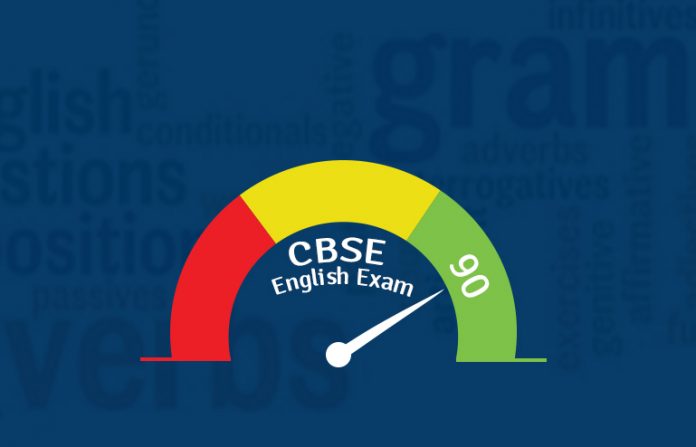English, the only compulsory subject across the various streams and classes, is also a high-scoring one. Although CBSE Board English seems easy, it is important to understand that one cannot gain mastery over it in a few days (or weeks). It can only be done over a period of time!
The CBSE Board English paper for Class 10 is divided into four sections: Reading, Writing, Grammar, and Literature & Long Reading Texts. To get high marks in the paper, you will need to score well in each of these sections.
Now, let us take a look at an ideal study plan for these sections, individually:
Reading
The first section of the paper, it comprises unseen passages. The most common—and effective—way to improve reading-comprehension is by reading an unknown passage and summarizing it point-wise. Read everything you can find; and before long, you will find yourself gaining a stronghold over this section. While reading, keep a check on the time spent on a passage, and in solving all the questions associated with it. Ideally, not more than 10–12 minutes should be spent on a moderately difficult passage.
Note down the words whose meaning you are not aware of, and look them up in a dictionary. This will help improve your vocabulary.
Writing
In this section, questions based on letter writing, formal letters (complaints/inquiry/placing orders/letters to the editor), articles, applications, etc., are asked. To improve your skill, regularly practice writing compositions. This will help form a clear idea about what you are going to write; and how to structure the composition before you start writing it. Make sure you stay within the word limit.
Read up on the general topics covered in these types of questions (questions on article writing are usually based on prevalent social issues), so that you are fully prepared if these are asked in the exam.
Grammar
This section tests your knowledge—as well as your application—of tenses, modals, use of passive voice, subject-verb agreement, reporting (commands and requests, statements, questions), clauses, determiners, conjunctions, articles, and prepositions. The questions asked are mostly objective type, in the form of sentence correction, fill-in-the-blanks, or editing. So, when you revise the concepts of basic grammar, give special emphasis on their usage.
Literature & Long Reading Texts
Questions on long reading texts are usually in-depth and can be asked from any part of the chapter. Hence, it is important to be familiar with every nook and corner of the chapters. In the case of poems, for example, you should have complete clarity about the context and the deeper meaning. Character sketches are common questions; so, it would be wise to work on sketches for the main characters(at the very least) well in advance.
Ideally, on the day before the English exam, most of your preparation time should be devoted to the Literature section. Go over all the stories, poems, and plays once. The remaining time can be spent on the formats of the questions in the Writing section. As for the Grammar and Reading sections, there is little to be gained by studying these on the last day. Your preparation for these sections should be completed well in advance.
Follow these strategies, and boost your chances of scoring a 90+ in the CBSE Board English Exam! You may also be interested in reading about tips to score a 90+ in CBSE Board Maths.
Best of luck!
If you have any queries, write to us in the Comments section below; and we’ll get back to you shortly.





















































